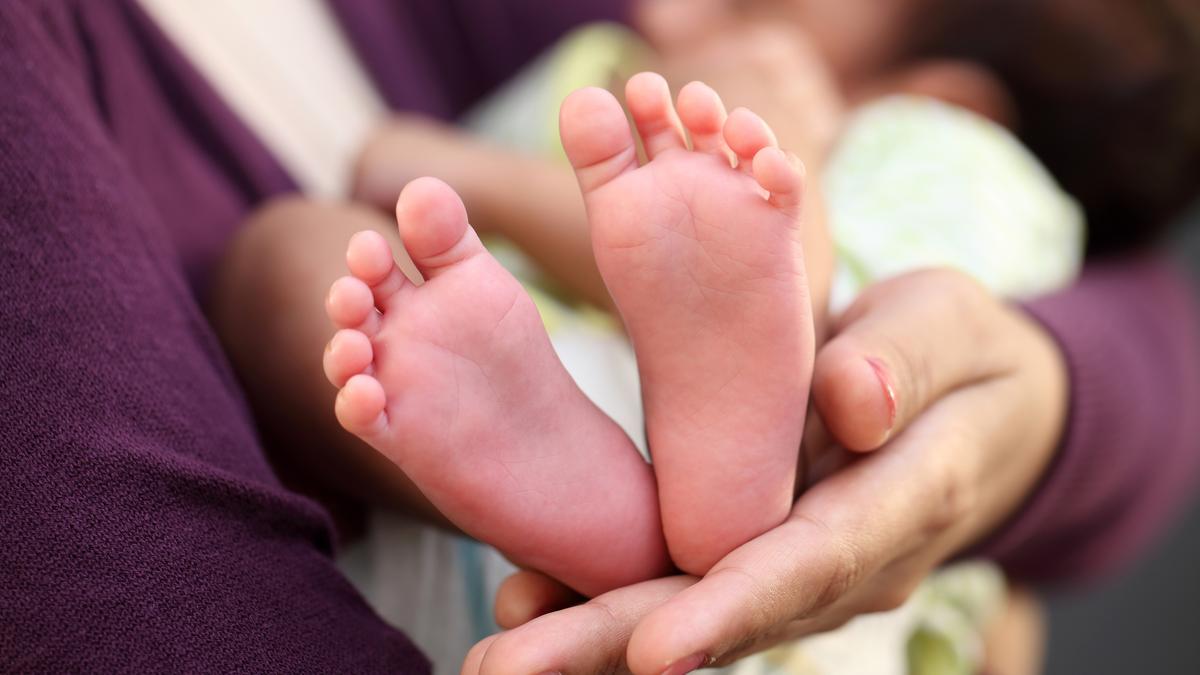
Three in One: West Bengal’s ambitious project to eliminate mother-to-child transmission of HIV, syphilis and Hepatitis B Premium
The Hindu
West Bengal government aims to eliminate mother-to-child transmission of HIV, syphilis, and Hepatitis B by 2026.
In an ambitious goal to eliminate mother-to-child transmission of HIV, syphilis and Hepatitis B by 2026 the West Bengal government, has recently begun a pilot project, believed to be the first-of-its kind in the country. The ‘Triple Elimination’ initiative has been launched in partnership with the William J Clinton Foundation (WJCF) and the World Health Organization, and is being spearheaded by the State Health Department.
All three diseases -- HIV, syphilis and Hepatitis B -- are infectious, and their mode of transmission is similar, sexual and vertical (mother-to-child) transmission. All three diseases have a long incubation period and also have a lifetime impact on infected persons. There is evidence of increased mortality and morbidity rates in infected mothers and infants with these diseases. The lower the age of a child with Hepatitis B, for instance, the higher the chances of their getting chronic liver diseases; birth with congenital syphilis can lead to deformities in the baby.
“The USP of this initiative is that two major disease control programmes, the HIV control programme along with the STI/RTI (sexually transmitted/reproductive tract infections) and the Viral Hepatitis control programme are now no longer functioning in silos. They are being dealt with together to address maternal and child health as whole. Four verticals (HIV, STIs, Hepatitis and maternal/child health) are now acting in unison to prevent infections in newborns,” said Pallav Bhattacharya, State Task Force member of the Triple Elimination initiative, adding that this was the first such medical initiative to address and stop the transmission of three diseases through a holistic approach.
The government has formed a State Task Force (STF) and a Technical Advisory group (TAG) to initiate this project. It was first launched in April 2024, as a pilot in four districts: Coochbehar, Rampurhat, South 24 Parganas and Diamond Harbour. Once the intervention showed a positive response in these four areas, in March 2025, the project was launched across all 23 districts in the State.
Rahul Biswas, State Coordinating Officer for Triple Elimination, said that the government was positive that complete elimination would be successful by 2026. “Our foundations are fairly sound. This is why we scaled up the initiative across the whole State.”
Though started by the government health department, the initiative now includes private medical facilities for a comprehensible and inclusive approach towards elimination.
Every pregnant woman is screened for all three infections during the anti-natal period. This includes both high-risk groups and the general population. If any woman tests positive, she is linked to the concerned medical departments to initiate treatment and counselling.

Improve tax collections and become self-sufficient, MA&UD Minister Narayana tells Municipal Commissioners. With their delinking from CFMS, the Urban Local Bodies can retain and utilise the taxes collected for their own development, and give an impetus to providing quality essential services to the people, he says. The government has set a target of sterilising all dogs within 200 days, he adds.

The politically dominant, land-owning Vokkaliga and Veerashaiva-Lingayat communities, which have for long opposed the socio, economic and educational survey (caste census) conducted by the Karnataka State Commission for Backward Classes are expected to adopt a “wait and watch” approach on the outcome of the Friday’s Cabinet meeting, where the issue is likely to be discussed. It has been nearly a decade since the survey was completed.





















 Run 3 Space | Play Space Running Game
Run 3 Space | Play Space Running Game Traffic Jam 3D | Online Racing Game
Traffic Jam 3D | Online Racing Game Duck Hunt | Play Old Classic Game
Duck Hunt | Play Old Classic Game









